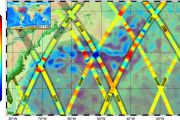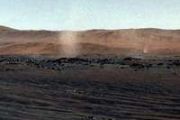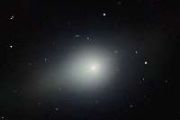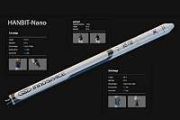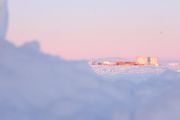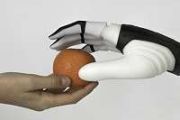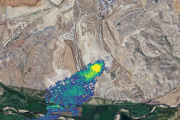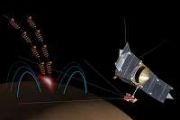
Copernical Team
China and Brazil advance joint efforts on seventh satellite
 Engineers and scientists from China and Brazil are collaborating on the development of a new remote-sensing satellite aimed at enhancing data collection and imaging for public and economic use.
The CBERS-6 satellite, currently being developed at the China Academy of Space Technology in Beijing and the National Institute for Space Research in Sao Paulo, will be the seventh addition to the C
Engineers and scientists from China and Brazil are collaborating on the development of a new remote-sensing satellite aimed at enhancing data collection and imaging for public and economic use.
The CBERS-6 satellite, currently being developed at the China Academy of Space Technology in Beijing and the National Institute for Space Research in Sao Paulo, will be the seventh addition to the C Impulse Space chosen for NRO BALISTA contract to enhance agile space tech
 Impulse Space, known for its in-space transportation solutions, has been awarded a BALISTA contract by the National Reconnaissance Office's (NRO) Office of Space Launch (OSL). The contract aims to assess advanced space technology capabilities that align with the NRO's strategic objectives.
"Being selected for the BALISTA contract is an opportunity for Impulse Space to demonstrate how enhan
Impulse Space, known for its in-space transportation solutions, has been awarded a BALISTA contract by the National Reconnaissance Office's (NRO) Office of Space Launch (OSL). The contract aims to assess advanced space technology capabilities that align with the NRO's strategic objectives.
"Being selected for the BALISTA contract is an opportunity for Impulse Space to demonstrate how enhan Fort Detrick Maryland chosen as permanent site for Wideband Military SATCOM training
 Fort Detrick, Maryland, has been designated as the permanent home of the Wideband Satellite Communications (SATCOM) Operations Center (WSOC), which will host the Wideband Transmission Controller Operator Course (WTCOC). This course trains Guardians in managing satellite transmissions across the Wideband Global SATCOM (WGS) and Defense Satellite Communications System (DSCS) constellations.
Fort Detrick, Maryland, has been designated as the permanent home of the Wideband Satellite Communications (SATCOM) Operations Center (WSOC), which will host the Wideband Transmission Controller Operator Course (WTCOC). This course trains Guardians in managing satellite transmissions across the Wideband Global SATCOM (WGS) and Defense Satellite Communications System (DSCS) constellations. New DESI results weigh in on gravity
 Gravity has shaped our cosmos. Its attractive influence turned tiny differences in the amount of matter present in the early universe into the sprawling strands of galaxies we see today. A new study using data from the Dark Energy Spectroscopic Instrument (DESI) has traced how this cosmic structure grew over the past 11 billion years, providing the most precise test to date of gravity at very la
Gravity has shaped our cosmos. Its attractive influence turned tiny differences in the amount of matter present in the early universe into the sprawling strands of galaxies we see today. A new study using data from the Dark Energy Spectroscopic Instrument (DESI) has traced how this cosmic structure grew over the past 11 billion years, providing the most precise test to date of gravity at very la Morpheus Space announces collaboration with D-Orbit for GO-2 in-orbit test mission
 Morpheus Space, a leading innovator in in-space mobility solutions, has revealed a partnership with D-Orbit, a prominent space logistics provider, to conduct an in-orbit demonstration mission aboard the ION Satellite Carrier, D-Orbit's orbital transfer vehicle. This mission will showcase the cutting-edge performance of Morpheus' GO-2 electric propulsion system in an operational space environment
Morpheus Space, a leading innovator in in-space mobility solutions, has revealed a partnership with D-Orbit, a prominent space logistics provider, to conduct an in-orbit demonstration mission aboard the ION Satellite Carrier, D-Orbit's orbital transfer vehicle. This mission will showcase the cutting-edge performance of Morpheus' GO-2 electric propulsion system in an operational space environment 'Harness the now': British singer Imogen Heap embraces AI
 Unlike the bulk of her peers, Grammy-winning British singer Imogen Heap is embracing the use of artificial intelligence (AI) in her music as well to set up a music collaboration platform.
"I am excited about AI because I feel maybe it can help humans harness the now," she told AFP on the sidelines of the four-day Web Summit tech conference in Lisbon which wrapped up on Thursday.
The two-
Unlike the bulk of her peers, Grammy-winning British singer Imogen Heap is embracing the use of artificial intelligence (AI) in her music as well to set up a music collaboration platform.
"I am excited about AI because I feel maybe it can help humans harness the now," she told AFP on the sidelines of the four-day Web Summit tech conference in Lisbon which wrapped up on Thursday.
The two- Orion Space Solutions set to enhance on-orbit refueling for U.S. Space Force
 Orion Space Solutions (Orion), a subsidiary of Arcfield, has secured an additional contract from the U.S. Space Force (USSF) Space Systems Command (SSC) to extend its work on the Tetra-6 mission. This four-year award builds upon Orion's existing Tetra-5 prime contract, focusing on advancing refueling technologies in space.
The Tetra-6 mission aims to showcase a distinct refueling approach
Orion Space Solutions (Orion), a subsidiary of Arcfield, has secured an additional contract from the U.S. Space Force (USSF) Space Systems Command (SSC) to extend its work on the Tetra-6 mission. This four-year award builds upon Orion's existing Tetra-5 prime contract, focusing on advancing refueling technologies in space.
The Tetra-6 mission aims to showcase a distinct refueling approach Researcher explore dark matter's origins in potential dark Big Bang event
 Recent findings from Colgate University's Department of Physics and Astronomy have opened up intriguing possibilities about the origins of dark matter, which could reshape current scientific perspectives.
Assistant Professor Cosmin Ilie and senior Richard Casey examined the theory advanced by Katherine Freese and Martin Winkler from the University of Texas at Austin, suggesting dark matter
Recent findings from Colgate University's Department of Physics and Astronomy have opened up intriguing possibilities about the origins of dark matter, which could reshape current scientific perspectives.
Assistant Professor Cosmin Ilie and senior Richard Casey examined the theory advanced by Katherine Freese and Martin Winkler from the University of Texas at Austin, suggesting dark matter NASA to assign cargo missions to SpaceX and Blue Origin for Artemis
 NASA is set to deepen its Artemis campaign, targeting long-term lunar exploration, by assigning key cargo missions to SpaceX and Blue Origin under their current contracts. This move supports NASA's goal of fostering scientific advancement and sustainable operations on the Moon.
Following successful design certification reviews, NASA plans to award demonstration missions to SpaceX and Blue
NASA is set to deepen its Artemis campaign, targeting long-term lunar exploration, by assigning key cargo missions to SpaceX and Blue Origin under their current contracts. This move supports NASA's goal of fostering scientific advancement and sustainable operations on the Moon.
Following successful design certification reviews, NASA plans to award demonstration missions to SpaceX and Blue ESA set to advance European launch services with a Boost!
 Several European space companies are gearing up for their inaugural rocket launches, a crucial phase akin to a startup's first product debut but with significant operational challenges and financial pressures. To support these companies during this period, ESA has allocated euro 44.22 million in co-funding, reinforcing its commitment to assist the space sector as it moves from development to re
Several European space companies are gearing up for their inaugural rocket launches, a crucial phase akin to a startup's first product debut but with significant operational challenges and financial pressures. To support these companies during this period, ESA has allocated euro 44.22 million in co-funding, reinforcing its commitment to assist the space sector as it moves from development to re 


